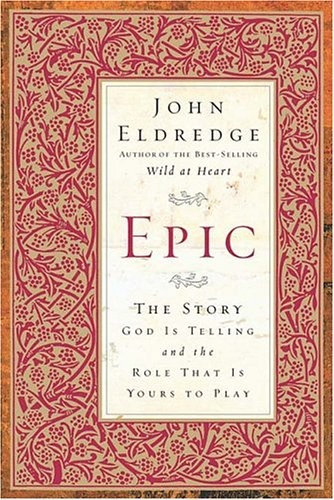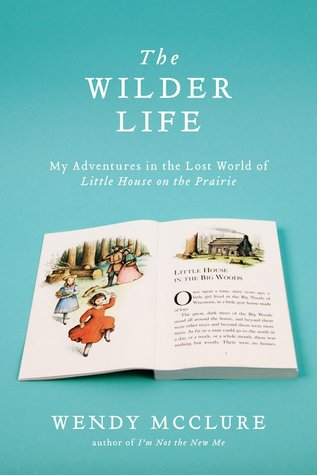A Room of One’s Own
 A Room of One’s Own is around 100 pages long. It’s Virginia Woolf’s stream-of-consciousness essay (originally a speech to an all-women’s college in 1929) on the subject of women in fiction. At least, that’s what she sets out to address; she ends up delving into the ways women have been so oppressed throughout history that they have never (as of the time of this essay) developed their own distinctive literary style.
A Room of One’s Own is around 100 pages long. It’s Virginia Woolf’s stream-of-consciousness essay (originally a speech to an all-women’s college in 1929) on the subject of women in fiction. At least, that’s what she sets out to address; she ends up delving into the ways women have been so oppressed throughout history that they have never (as of the time of this essay) developed their own distinctive literary style.
Is it true that, as Woolf contends, “a woman must have money and a room of one’s own to write fiction”? This is why I picked up the book… It’s funny how themes emerge in one’s reading, and lately this theme of having a room all your own has come up more than once. Means and privacy, says Woolf, are two things that women have not had historically, as mothers and wives and “support staff.” She took some heat for this so-called “elitist” aesthetic, but it’s an interesting assertion because it makes me think about what is essential for artistic creation. I remember reading in The Narnian that C.S. Lewis did all of his writing in the thick of an interruptive, noisy, demanding home life. Woolf would probably say, “Yes, but he was a man and had inherited the well-nourished intactness of the male ego.” Perhaps, I would reply; yet if there is a distinctively female style of thought, a distinctively female aesthetic, maybe it develops in and reflects these conditions in which Woolf argues women have evolved: lack of means and privacy.
Do women have a distinctive style of thinking, expression, and imagination? I confess that if Woolf’s style is “it” — and developing/pioneering stream-of-consciousness, and the contrast between interior and exterior time, is her major contribution to literature — it doesn’t represent me. In fact, it drives me a little crazy. I don’t do very well with so-called “woman-style” communication that is circuitous and full of bunny trails. I hope there’s room for a more linear style in the realm of “women’s writing.”
Has there been — is there still — a patriarchy? I am not a hard-core feminist, yet Woolf gives quite a rundown of the ways women have been kept in their place historically. She concludes,
Women have served all these centuries as looking-glasses possessing the magic and delicious power of reflecting the figure of man at twice its natural size… Whatever may be their use in civilized societies, mirrors are essential to all violent and heroic action. That is why Napolean and Mussolini both insist so emphatically upon the inferiority of women, for if they were not inferior, they would cease to enlarge… How is [a man] to go on giving judgment, civilizing natives, making laws, writing books, dressing up and speechifying at banquets, unless he can see himself at breakfast and at dinner at least twice the size he really is?
Rather an inflammatory passage, isn’t it? Even in 1929, things were changing for women writers (and women in general), and in our day we live in an era of something closer to “equality”, for better and/or worse. (I always think of Kurt Vonnegut’s satire “Harrison Bergeron”: “It was the year 2081, and everyone was finally equal.”) But this is one example of a passage that brought me up short and made me think.
I am a Christian of evangelical background, and such lines of thought are not common in the circles I travel in. Though some would say Christianity in all its expressions is “patriarchal,” I actually see much in the Bible that reflects a God whose view of women is far advanced beyond the human civilizations with whom he relates. I think of the Creation story’s emphasis on how both male and female were created in God’s image, an idea reflected later in Ephesians, where Paul — the same Paul who says women should never be in a position of authority over a man — urges mutual submission in marriage. I think of Marilynne Robinson’s observations about the concern for the societally weak — women, slaves, criminals — that runs insistently through Mosaic Law. And I think of certain stories — the angel coming to Samson’s mother, God coming to Hagar, Jesus talking to the woman at the well (and other women) — where God flouts human traditions and reflects a more liberal view of women than their husbands or their cultures would acknowledge. So I don’t think that the Bible is an endorsement of overbearing patriarchy at all.
Yet a book like this makes me think of my own experience as well, and it does provide a different perspective on some things that have bounced around in memory over the years without finding a resting place. It makes me think, and question, and wonder, even as it tries my patience and occasionally makes me shake my head dismissively. Certainly it takes me over terrain I don’t habitually travel and makes me pause and reflect over prospects I hadn’t thought about before.



2 Comments
Carrie, Reading to Know
I rather think her argument bogus, based on bitterness. I have very little sympathies as a general rule for the “women are so very oppressed” arguments and how men are awful for bullying us about. I recognize that there are some societies and times in history when that has been the over all case but every person, every race and every society can throw pity parties at whim and find ways to justify it.
As for women not having a chance to develop their own literary style? What of the Bronte sisters? Austen? Gaskell? Beecher Stowe? Alcott? I think there is plenty of evidence that women were able to write, and write effectively, before Woolf came along to groan her frustrations out.
Janet
She discusses all of those writers.
I think that’s been my knee-jerk reaction for years too. But it’s interesting to pause and look at the arguments directly, rather than simply reflecting views I’ve absorbed from the atmosphere for so many years.
Malcolm Gladwell wrote a best-seller about how no one succeeds alone — the “self-made” person (“man” is the usual term) is a myth. Woolf is pointing to the down-side of same phenomena — that we can suppress individuals and groups as easily as we can set them up to succeed.